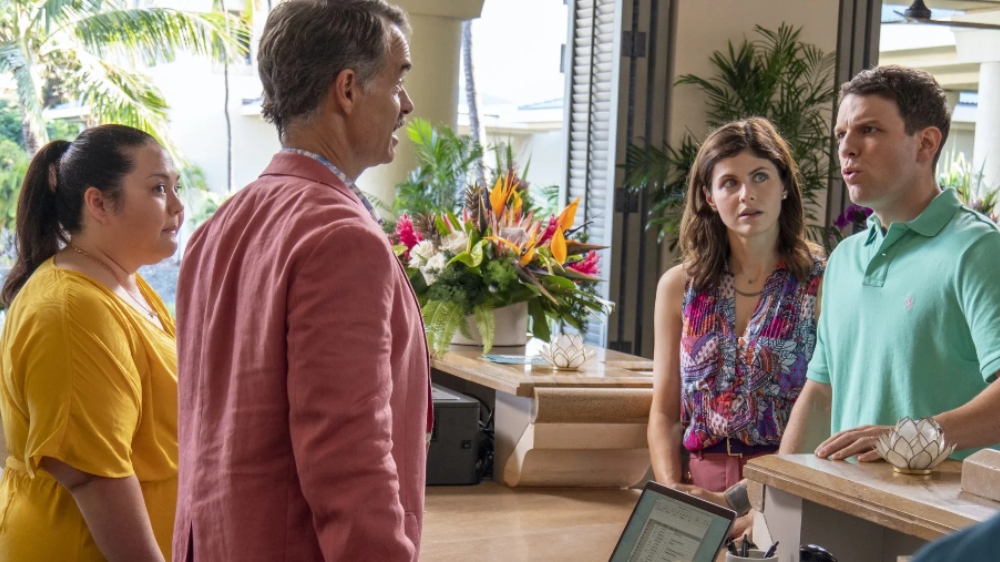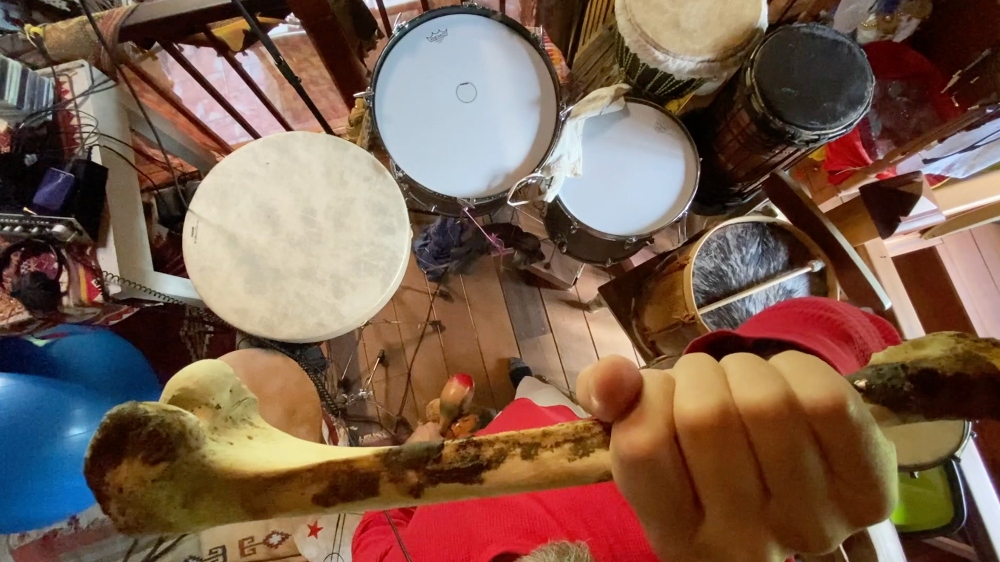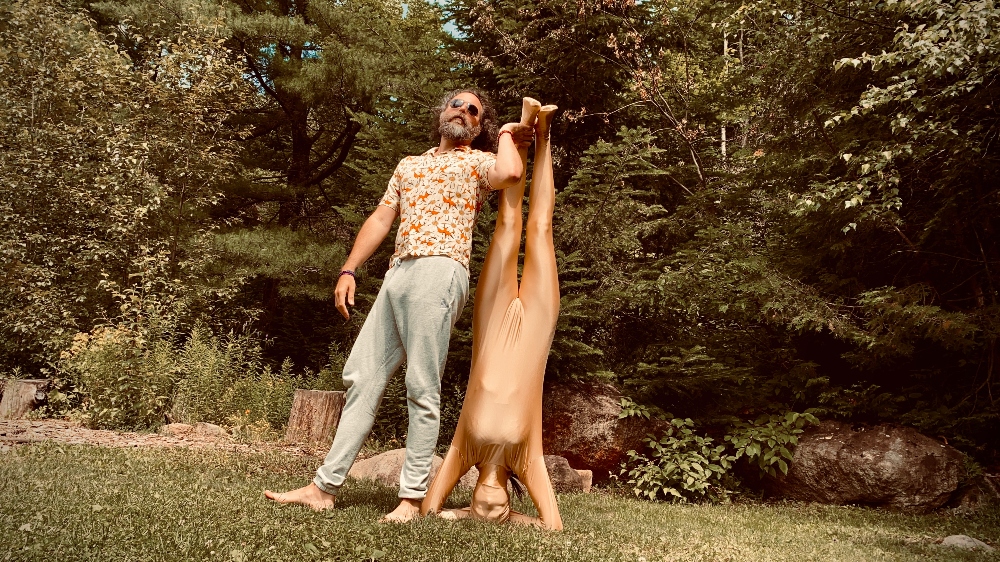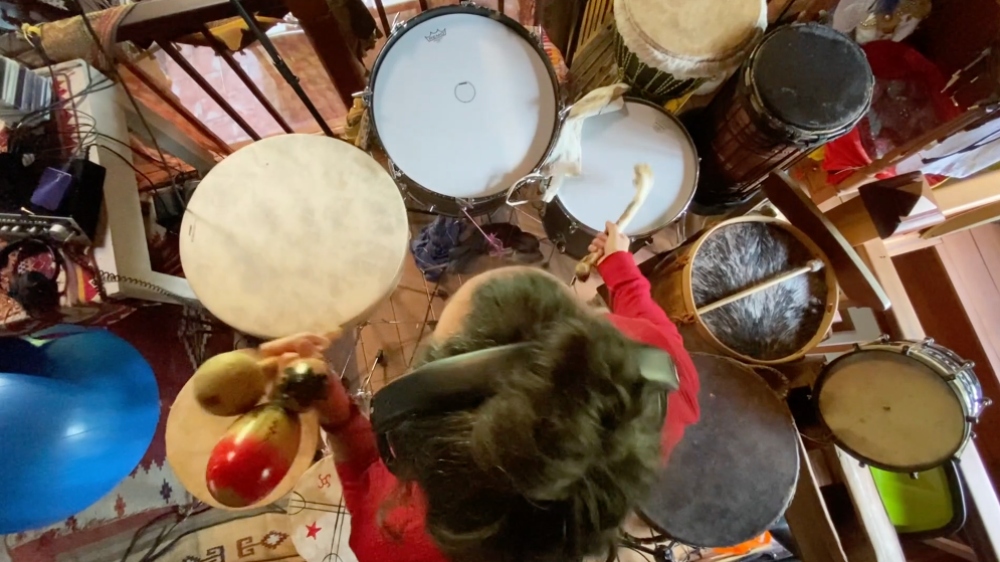
It’s hard to imagine the wildly popular The White Lotus being quite so impactful without its signature main title theme, which manages to highlight the show’s satirical nature while also adding so much to a truly bizarre and unique viewing experience. The man responsible is Composer Cristobal Tapia de Veer, who earned two Emmy nominations for his work on the show, for the main title theme and original dramatic score.
Tapia de Veer has a history of top-notch TV work and revealed that he was contacted because creator Mike White had been using his score from Black Mirror as a placeholder for the music of The White Lotus. In his conversation with Below the Line, Tapia de Veer also shared his inspirations for the sound of The White Lotus, and how the show’s musical influences will change in Season 2.
Tapia de Veer was happy to discuss his previous work and whether he thinks there’s a consistency to the music he composes. He didn’t just look back, of course, as he also teased his next project, the upcoming horror movie Smile.

Below the Line: Congratulations on your two Emmy nominations!
Cristobal Tapia de Veer: Thank you!
BTL: Can you tell me about how you became involved with The White Lotus?
Tapia de Veer: I got a call from the production and they sent me a script, which I loved, so I took a meeting with Mike White. We had a talk and we had a good vibe, a good communication [in terms of] what we needed to do for this show. They contacted me because they were using [some] of my music that I did for Black Mirror at some point. They were using that as a temp score, and it was the best music they found that worked for them. So that’s why they ended up calling me for this.
BTL: Were you familiar with Mike White’s work at all before this?
Tapia de Veer: Not really. I hadn’t seen the HBO shows. I hadn’t really seen the classics, like School of Rock. I started watching all this stuff afterward, and I love his work and his writing. I watched a couple of things that I had never even heard about, this movie with Salma Hayek, Beatriz at Dinner, that he wrote. It’s always really great stuff that I can relate to, so we had a good connection from the start.
BTL: Has this happened before — someone has called saying they’re using your previous music as a placeholder?
Tapia de Veer: Yeah, it has happened in the last few years. I started doing this in 2011, that was the first show that I did. After Utopia, which was in 2013, my sound became somehow recognizable. I started getting calls from people that wanted me to do what I did for that show for them. So I guess from that point, I started getting calls from people that were using the Utopia score as temp or stuff like that.

BTL: Can you walk me through the process of coming up with this really incredible and unique score?
Tapia de Veer: Yes, it wasn’t very complicated. I didn’t have much time. When I met Mike, we had maybe a month for the first mix. I basically just jumped after I talked to him and I didn’t really think that much about it. There was this tribal sound and this somehow defiant sound from the voices in the percussion that became the main thing for many reasons. There’s something raw and naturalistic about it. The music is not corrected at all, the voices are not tuned. It’s not quantized.
It just felt right to me when I was working on it, certain aspects of the show, like colonialism, that I felt the music was representing. It almost feels like nature screaming back at you. Sometimes it feels like the music is laughing at these people. The situation [has] become kind of a zoo, like wild animals but out of control. So I suppose the music is commenting on all these things. But I didn’t really have a plan for any of that. It’s just spontaneously reacting to the characters and the story. So it wasn’t like a major pontification, it was pretty spontaneous.

BTL: Do you think that this is substantially different from the work that you’ve done in the past or just a more creative interpretation of different material?
Tapia de Veer: I think it’s in line with what I’ve been doing. Mike was using this tune from Black Mirror and I was looking for ways to give him that in a new version. It doesn’t bother me to do that, even though I ended up with something where you can clearly hear an echo from Black Mirror in some of the tracks. But I’m fine with that because I like to connect certain projects, to bring sounds with me to another project, because sometimes I make instruments or sounds that are recognizable that I use only for myself and for my projects.
In the same way that, with a guitar player, you’re always going to hear the rock guitar in the score, because the composer was a rock and roll guitar player at some point. For me, all the sounds are like part of my family. It’s my guitar or my whatever instrument, my recognizable thing. I like bringing that with me, although I had to not copy, but get [inspiration] from the temp score. Although, at least it’s my own music. But I suppose there is a link between almost all [the] projects that I’ve done.
BTL: The main title theme music works very well with the main titles. Did the music come first, or the other way around, and was it a collaborative process?
Tapia de Veer: We never talked to each other. I just received the images, and I tried the music on it, and it just worked. So I suppose this has to be Mike’s direction to everybody in the project, and we somehow connected without even realizing [it]. And now, for Season 2, it’s the same thing. I just received the images for the titles. I did a new version for the theme song to fit the new context. These images are just amazing, what they did. It works fantastically with the music. I don’t know how that happens. Maybe we’re just somehow going to the same places without even talking.

BTL: I was looking through your resume and you have a lot of really cool stuff on there. My favorite besides this show is probably Dirk Gently’s Holistic Detective Agency.
Tapia de Veer: Yeah, I have to do another for that at some point. It’s been years, and I always say to people, ‘yeah at some point it’s going to happen, there’s going to be an album.’ But I never had the time, but I think it’s going to happen at some point because I did like that project and the fans of the project feel really uplifting and honest. It’s inspiring to hear from fans from the Dirk Gently show.
BTL: I think it also fits in with a lot of the work that you’ve been talking about with Black Mirror and Utopia — not always technology-related, but weird worlds where you can’t really explain what’s going on even if you try.
Tapia de Veer: Yeah, it’s true.

BTL: I also really liked Humans. I don’t know how big that was here in the U.S., but I know that was one that also felt like the music was in line with the way that the machines were acting.
Tapia de Veer: Yeah, that was pretty big in the UK. That was a fun project. That was AMC in the USA. I have no idea how well-known that show really is. I left after the first season, so I don’t know about the rest. But, yeah, I think in the UK it was pretty popular.
BTL: You also did the music for The Third Day, which I think stands out a bit. Even though, again, we don’t really understand what’s happening in that show, it’s a little different from the others we’re talking about, as there’s a majestic and mysterious element that’s more awe-inspiring.
Tapia de Veer: There is a slightly more classic approach to some of the dramatic music. There is a bit of a folk horror thing going on. So it felt less like we were starting from scratch, but there was already a style that we could play with. I suppose that’s why there are, in the music, these influences of folk horror. If I compare that to another horror project that I just did, a movie called Smile, for a movie like this, we’re not looking back to anything. We have to come up with something new. Those are the projects that are more striking. When you get into them, you don’t know what’s going on. It’s a new thing. Maybe a little bit more interesting than not having to play in a certain style.

BTL: You also worked on Hunters, which is something else altogether. I’m not sure what’s happening with Season 2, but that’s the closest to action that I’ve seen you do, and it’s also set in a certain period and very stylized.
Tapia de Veer: Yes, there’s lots going on in that one. I don’t know that the music is as much of a character in the show, in the sense that there’s so much music that is not only the score but period music and classical music and all kinds of stuff. It’s not quite the same role for the music.
BTL: Is there anything else that you’re working on?
Tapia de Veer: This movie Smile that I just finished is coming out on September 30. That should be interesting. There are definitely some really weird sounds in there that I haven’t done for any other project, a couple of new instruments. It’s very creepy. You have to be a horror fan to watch this one.
Season 1 of The White Lotus is now streaming on HBO Max, while Season 2 is expected to premiere in October.





